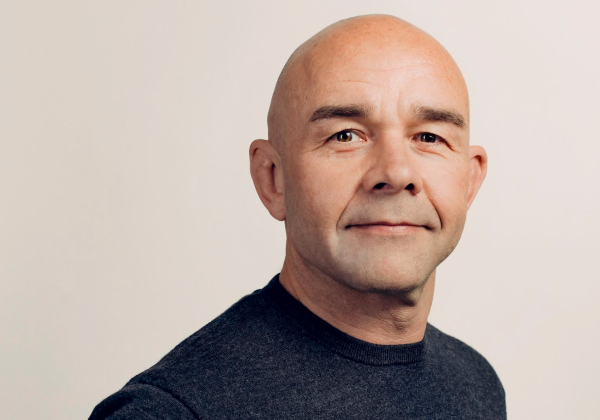Playing Her Cards Right
As a journalist, Maria Konnikova has always seen things through a different lens. With a bachelor’s degree in creative writing from Harvard and a Ph.D. in psychology from Columbia, she is uniquely positioned to tease out the intricacies of human behavior and explain them in ways that are both eye-opening and entertaining. She has done this in her reporting for magazines such as The New Yorker and The Atlantic, and in three exceptional books.
Each of Ms. Konnikova’s nonfiction books exposes different aspects of the human psyche and human behavior and extracts practical insights relevant to everyday life—including life in the C-suite. Her first book, Mastermind: How to Think Like Sherlock Holmes, explains how humans can become masters of close observation and practical deduction. Her second, The Confidence Game: Why We Fall for It … Every Time, illuminates how con men throughout history have used their knowledge of human nature to learn what individuals want and benefit from this knowledge.
In her newest book, The Biggest Bluff: How I Learned to Pay Attention, Master Myself and Win, Ms. Konnikova tells her story of learning the game of high-stakes poker. She begins as an apt but completely novice pupil. With diligent practice, intense observation and the help of mentor Erik Seidel, she becomes a poker champion in little more than a year. In the process, Ms. Konnikova learns that the poker table is an intensified classroom for the study of human behavior, including decision-making, negotiation and risk-taking. Here are four takeaways relevant to the C-suite:
Get comfortable with the unknown
Early on in her research on poker, Ms. Konnikova dove into game theory in the form of John von Neumann’s book Theory of Games and Economic Behavior. While Mr. Neumann disdained chess, he had a passion for poker. Why? Because chess provides two players with all the information they need, but poker forces players to make decisions based on probability. “To him, it represented that ineffable balance between skill and chance that governs life,” Ms. Konnikova writes. As someone with a degree in the psychology of decision-making, this balance is also what draws her to the game.
As in business, you need to learn to make the best decisions possible in poker without the benefit of complete information. To do that, she writes, means learning to manage your emotions, read your competition, cut losses and maximize gains.
As in business, you need to learn to make the best decisions possible in poker without the benefit of complete information. To do that, she writes, means learning to manage your emotions, read your competition, cut losses and maximize gains.
Make luck work for you
After playing in one of her early poker tournaments, Ms. Konnikova experienced what is known as a “bad beat.” This means you played your cards well, but luck (and mathematic probability) was against you. The result: you lost. When this happened to Ms. Konnikova, she was understandably frustrated and began to complain to Mr. Seidel. He immediately silenced her. “Focus on the process, not the luck,” he said. “Did I play correctly?’ Everything else is just BS in our heads.”
She came to realize that Mr. Seidel’s calm in the face of poker chaos—his emotional resilience—was one key to success. When you are playing a game of probabilistic chance, just as in life, the important thing is to focus on what you’ve done right. “When you complain, you are wasting your breath and your emotional reserves,” Ms. Konnikova says on the multimedia portal Big Think Live. The important thing is to keep making smart choices. Focus on the process (which you can control) and not the outcome (which you cannot control). “Find your locus of control instead of creating a negative feedback loop.”
Take meaningful risks
Whether you are raising your bet in a poker tournament or considering buying a new company, emotions run high. After playing high-stakes poker for more than a year, Ms. Konnikova came away realizing that before taking a big risk, you must always ask yourself, “Why?” In poker, the pressure is enormous. Not only are you betting money, but every move has a time limit. This puts each decision and risk under a microscope.
Ms. Konnikova’s lesson: Before you make a bold move, look at your motivation. For instance, when taking a high-risk business move, ask yourself why you are doing this. For the adrenaline rush? To prove something to others? For valid business goals?
When negotiating, play against others’ biases
Poker is very much a man’s world. Only about 4% of players in the World Series of Poker are female. And high-stakes tables, according to Ms. Konnikova, are rife with sexist and misogynistic remarks and attitudes. While playing poker online and in person, Ms. Konnikova was well aware of both these chauvinistic tendencies and gendered social conditioning in general. She studied psychology in graduate school, after all, and considered herself free from those common “feminine” stereotypes—playing too gently, being too nice, not being aggressive enough. And yet, she told Big Think Live, she was surprised to see herself falling into some of those same traps: of not always playing the way she wanted to because she thought the other players might see her as a jerk.
Once she recognized what was happening, she was able to use the other players’ biases against them—a kind of psychological judo. They might not be expecting her to raise, so that’s exactly what she would do. Her lesson learned: There are no friends at the poker table. For everyday life: Decide what’s more important to you, to get that promotion or deal or to be liked.
This article appeared in the Winter 2021 issue of Insigniam Quarterly. To begin receiving IQ, go here.



